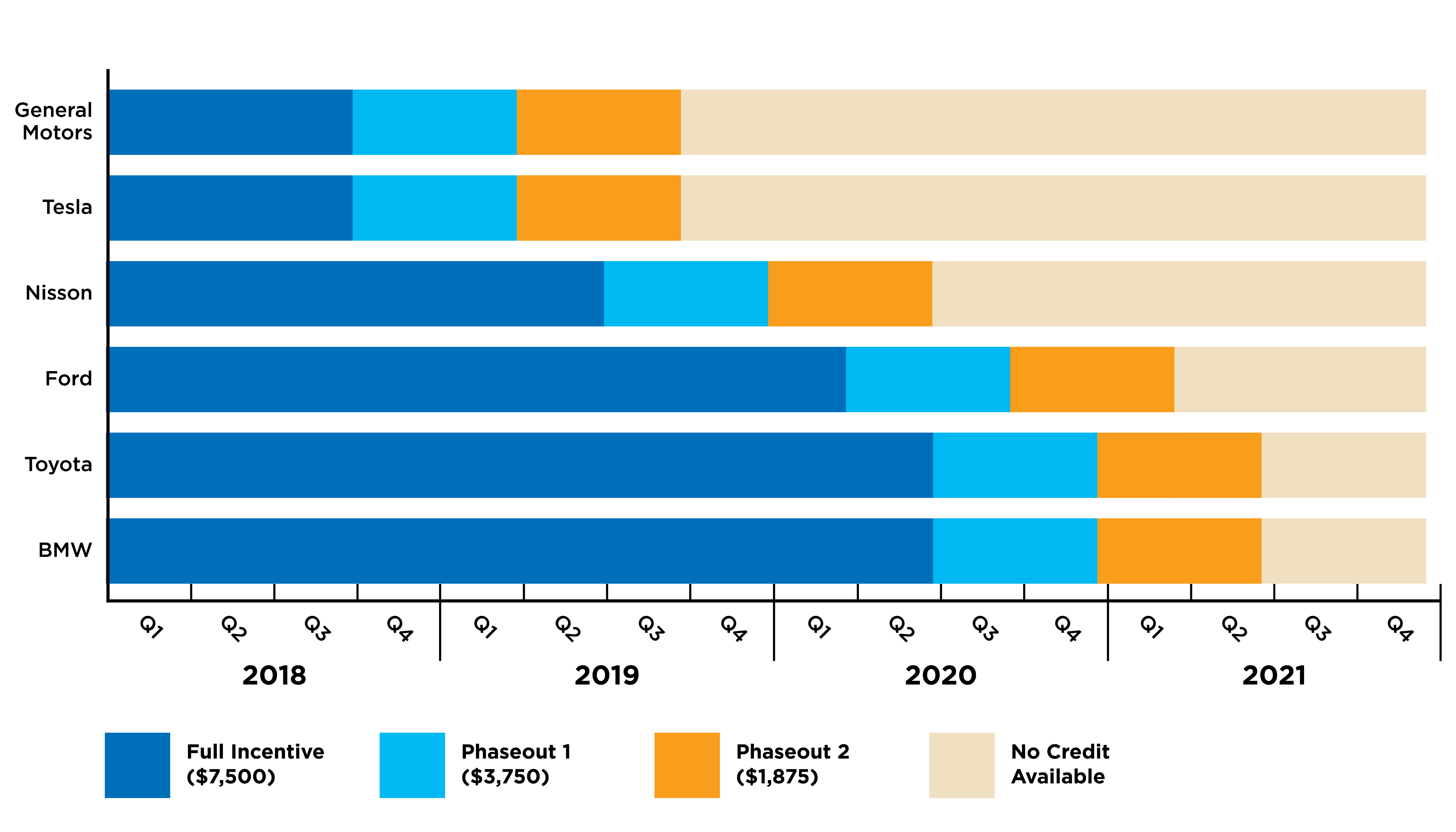Auto Dealers Intensify Campaign Against Electric Vehicle Mandates

Table of Contents
Economic Concerns Fueling Dealer Opposition to Electric Vehicle Mandates
The core of the auto dealers' opposition to electric vehicle mandates lies in significant economic concerns. These concerns threaten not only the profitability of individual dealerships but also the stability of the entire automotive retail sector.
Impact on Dealership Profitability
The shift to EVs presents a complex challenge to dealership profitability. Several factors contribute to this:
- Reduced profit margins on EVs: Currently, the profit margins on electric vehicles are generally lower than those on gasoline-powered vehicles. This is due to a combination of factors, including higher manufacturing costs and intense competition.
- High upfront investment in infrastructure: Dealerships face substantial costs in adapting to the EV market. This includes investing in charging stations, specialized EV maintenance equipment, and training technicians on EV-specific repair and maintenance procedures.
- Uncertainty surrounding future EV demand and market saturation: The long-term market demand for EVs remains uncertain, especially considering the relatively high initial purchase price and the limited charging infrastructure in many areas. This uncertainty makes it difficult for dealers to plan their investments and inventory strategies effectively.
- Many dealerships lack the resources to adapt to the rapid shift to EVs. Smaller dealerships, in particular, struggle to absorb the significant costs associated with EV infrastructure and training.
- The cost of maintaining EV inventories is significantly different than gasoline vehicles. Different storage requirements and potential battery degradation add to operational costs.
Job Security Fears Amidst the EV Transition
Beyond financial concerns, auto dealers are worried about the impact of electric vehicle mandates on job security. The transition to EVs is expected to alter the skillset required within dealerships.
- Potential job losses due to reduced sales staff and mechanic needs: EVs have fewer moving parts than internal combustion engine (ICE) vehicles, potentially reducing the need for certain types of mechanics. Sales staff may also see reduced demand if EV sales plateau.
- Need for specialized training and certifications for EV maintenance and repair: Mechanics need to acquire new skills to service and repair EVs, requiring significant investment in training and certification programs.
- Concerns about the automation potential within the EV industry: Automation in manufacturing and maintenance could further reduce job opportunities within the automotive sector.
- Reskilling and upskilling programs are crucial, but costly. Dealerships are struggling to balance the immediate financial pressures with the need for long-term workforce development.
- Dealerships are worried about the time and expense of adopting new technologies. The learning curve associated with new EV technologies poses a challenge for many established dealerships.
Challenges in Consumer Adoption of Electric Vehicles
Even with government incentives, widespread adoption of EVs faces significant hurdles, adding to the auto dealers’ concerns about electric vehicle mandates.
Range Anxiety and Charging Infrastructure Limitations
One of the biggest obstacles to EV adoption is range anxiety and the limitations of the current charging infrastructure.
- Lack of widespread public charging stations, particularly in rural areas: The uneven distribution of charging stations, especially in less populated areas, remains a major concern for potential EV buyers.
- Concerns about long charging times compared to gasoline refueling: The time it takes to charge an EV is significantly longer than refueling a gasoline car, which can be inconvenient for many consumers.
- Uncertainty about battery life and replacement costs: The lifespan of EV batteries and the costs associated with their replacement are major concerns for potential buyers.
- Improved charging infrastructure is crucial for wider EV adoption. Significant investment in public charging networks is needed to overcome range anxiety.
- Government subsidies are needed to lower the cost of EV ownership. Making EVs more affordable is key to accelerating their adoption.
High Initial Purchase Price of Electric Vehicles
The high initial cost of EVs remains a significant barrier to entry for many consumers.
- EVs are generally more expensive than comparable gasoline vehicles: The higher upfront cost of EVs makes them inaccessible to a significant portion of the population.
- Limited availability of affordable EVs for the mass market: The current market lacks a wide selection of affordable EVs that would appeal to a broader range of consumers.
- Challenges in accessing government incentives and rebates: Navigating the complex process of accessing government incentives and rebates can be challenging for consumers.
- Subsidies and tax breaks could help bridge the affordability gap. Targeted financial incentives can make EVs more competitive with gasoline cars.
- The cost of batteries is a major factor influencing the price of EVs. Lowering battery costs is essential for making EVs more affordable.
The Dealers' Lobbying Efforts and Their Strategies
Facing these economic and market challenges, auto dealers are employing various strategies to influence the implementation of electric vehicle mandates.
Collaboration with Industry Associations and Political Lobbying
Dealers are actively engaging in political lobbying efforts to shape the narrative around EV mandates.
- Influence on legislative processes and policy decisions: Dealers are working to influence legislation and regulations related to EV mandates.
- Formation of coalitions to counter EV mandate proposals: Dealers are forming alliances with other industry stakeholders to collectively oppose or modify EV mandate proposals.
- Funding of campaigns to raise public awareness about their concerns: Dealers are investing in public awareness campaigns to highlight the potential negative consequences of rapid EV adoption.
- Dealerships are employing aggressive lobbying tactics. They are leveraging their collective influence to impact policy decisions.
- They are highlighting potential negative economic consequences. Job losses and economic disruption are central to their arguments.
Public Relations Campaigns to Shape Public Perception
In addition to lobbying, dealerships are engaging in public relations campaigns to influence public perception.
- Highlighting the benefits of gasoline vehicles: Dealerships are promoting the advantages of gasoline-powered vehicles, emphasizing factors such as affordability and readily available infrastructure.
- Addressing concerns about EV technology and infrastructure: Dealerships are attempting to address consumer concerns about EV technology, range, and charging infrastructure.
- Emphasizing the potential job losses associated with rapid EV adoption: Dealerships are highlighting the potential negative employment impacts of rapid EV adoption.
- Dealerships are using media outreach to influence public opinion. They are actively engaging in media relations to shape the narrative surrounding EVs.
- Their messaging centers around consumer choice and market readiness. They are arguing for a more gradual transition to ensure market readiness and consumer acceptance.
Conclusion
The intensifying campaign by auto dealers against electric vehicle mandates highlights the complex challenges of transitioning to a cleaner transportation future. While the goal of reducing carbon emissions is laudable, it's crucial to address the legitimate concerns of dealerships regarding economic viability, consumer adoption, and job security. Finding a balanced approach that supports the transition to EVs while mitigating the negative impacts on the automotive industry requires collaboration between policymakers, manufacturers, and dealers. Continued dialogue and a pragmatic approach to implementing electric vehicle mandates are essential for a successful and equitable transition. Ignoring the concerns surrounding electric vehicle mandates could have severe economic consequences. Let's work together to find solutions that support both environmental goals and the automotive industry's future.

Featured Posts
-
 Impulsar Las Exportaciones Ganaderas El Plan De Uruguay Con Un Regalo Peculiar Para China
May 12, 2025
Impulsar Las Exportaciones Ganaderas El Plan De Uruguay Con Un Regalo Peculiar Para China
May 12, 2025 -
 Aaron Judge Open To Playing For Team Usa In 2026 World Baseball Classic
May 12, 2025
Aaron Judge Open To Playing For Team Usa In 2026 World Baseball Classic
May 12, 2025 -
 Netherlands Extends Border Checks Despite Fewer Arrests And Asylum Claims
May 12, 2025
Netherlands Extends Border Checks Despite Fewer Arrests And Asylum Claims
May 12, 2025 -
 Chto Delali Boris Dzhonson I Ego Zhena V Tekhase Novye Foto
May 12, 2025
Chto Delali Boris Dzhonson I Ego Zhena V Tekhase Novye Foto
May 12, 2025 -
 Anunoby Anota 27 Puntos Knicks Vencen A Sixers En Emocionante Partido
May 12, 2025
Anunoby Anota 27 Puntos Knicks Vencen A Sixers En Emocionante Partido
May 12, 2025
